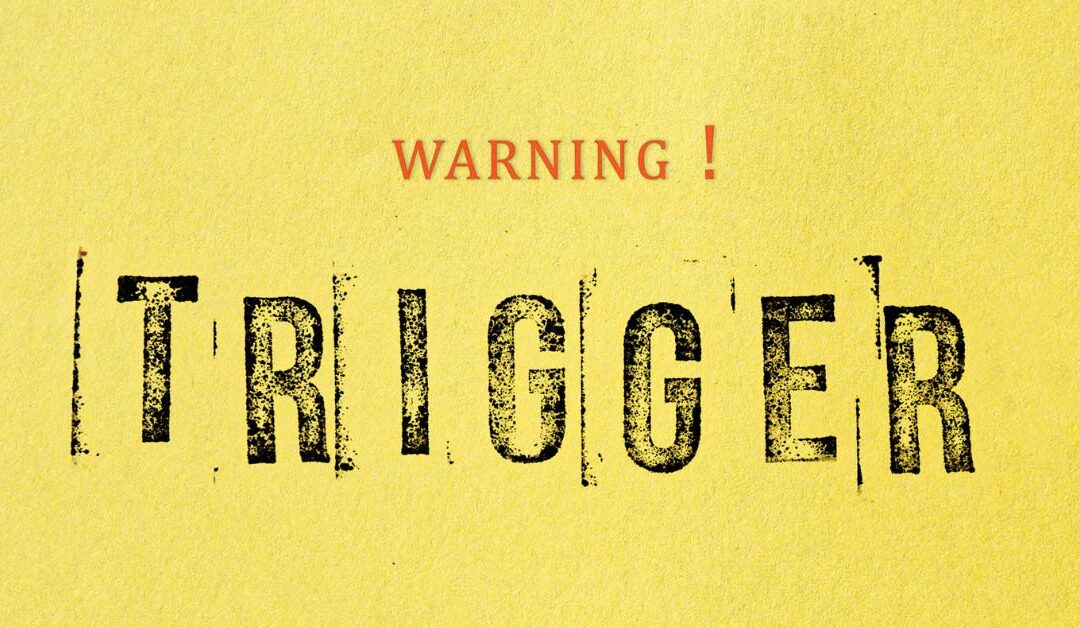Sobriety, once synonymous with total abstinence from alcohol, has evolved in definition and execution, mirroring our deepened understanding of the complexities of addiction and recovery. Current interpretations of sobriety extend beyond mere abstinence, to include elements of harm reduction and enhanced quality of life. This transformation is manifest in the innovative alcohol rehab programs that have emerged in recent years. Massachusetts, in particular, has been at the forefront of adopting and promoting these contemporary treatment paradigms.
Alcohol rehab programs in Massachusetts, renowned for their progressive approach, have been instrumental in shifting the focus from a rigid, abstinence-only model to one that accommodates individual patient needs and recognizes the importance of harm reduction. By providing more flexible alcohol treatment options in Massachusetts, these alcohol rehab programs in MA enable individuals to transition towards sobriety at a pace that suits them, fostering a more sustainable recovery process.
 This new wave of alcohol rehab programs also prioritizes improved quality of life as a key marker of successful recovery. Recognizing that addiction often co-occurs with other mental health issues, these programs provide holistic treatment plans that address not just the addiction itself, but also the underlying causes and associated mental health challenges. This ensures that individuals not only achieve sobriety but also experience improvements in their overall health and well-being.
This new wave of alcohol rehab programs also prioritizes improved quality of life as a key marker of successful recovery. Recognizing that addiction often co-occurs with other mental health issues, these programs provide holistic treatment plans that address not just the addiction itself, but also the underlying causes and associated mental health challenges. This ensures that individuals not only achieve sobriety but also experience improvements in their overall health and well-being.
Massachusetts is leading the charge in implementing these innovative alcohol treatment methods, with alcohol rehab centers across the state adopting this multi-faceted approach to addiction treatment. In addition to providing traditional recovery services, these centers offer various therapies designed to promote overall well-being, such as cognitive-behavioral therapy, individual and group therapy, trauma therapy, and more.
In the current age, our perception and comprehension of what it means to be sober have evolved and expanded significantly, to include far more than just complete and total abstinence from alcohol. It’s no longer just about completely avoiding alcohol, but it now also includes a steadfast commitment to reducing harm wherever possible and enhancing the overall quality of life for the individual in question. This shift in perspective, this pivot towards a more encompassing and forgiving understanding of sobriety, is being strongly advocated and pushed forward by a multitude of alcohol rehab programs scattered throughout the state of Massachusetts.
These programs, in their forward-thinking approach, are blazing new trails and pioneering a new, more holistic, and comprehensive approach to the treatment and management of addiction. They are steadfastly moving away from one-size-fits-all methodologies, and instead, are focusing their efforts on personalized and tailored therapeutic interventions that take into account the unique circumstances of each individual. The emphasis is on total wellness – addressing not just the symptoms, but the root causes of addiction, helping individuals to heal in body, mind, and spirit.
This concentrated effort on individualized therapy, on treating each person as a unique individual with unique needs, is greatly contributing to the ongoing redefinition of what it means to be sober. Sobriety, in this new understanding, is not just about abstinence, but about living a healthier, happier life. By focusing on total wellness, these Massachusetts alcohol rehab programs are reshaping the narrative around addiction and sobriety, and in the process, are establishing new standards and setting new benchmarks for alcohol rehab programs not just in their own state, but across the entire country. They are leading the charge in a nationwide shift in how we understand and approach sobriety, and in doing so, are making a real and meaningful difference in the lives of those struggling with addiction.
The Changing Landscape of Sobriety and Alcohol Rehab in Massachusetts
In the not-so-distant past, the approach to combating addiction was largely one-dimensional. The “Just Say No” campaigns of the 1980s, for instance, were ubiquitous, and promoted with a fervor that matched their noble intentions. However, they offered a stark, binary representation of sobriety: You were either clean, fully abstaining from substance use, or you weren’t. This mindset overlooked the intricate nature of addiction, treating it as a simple matter of willpower rather than a complex interplay of biology, environment, and personal circumstances.
Fast forward to today, and our understanding of addiction and the road to sobriety has evolved significantly. We’ve come to appreciate that addiction is a multifaceted disorder, one that requires a comprehensive, individualized approach to treatment. We understand that recovery is not linear but a journey with peaks and valleys, progress, and setbacks. The landscape of sobriety is no longer painted in black and white but embraces the many shades of gray that reflect the diverse experiences of those striving for recovery.
 One of the most significant shifts in the recovery landscape is the recognition that there is no one-size-fits-all solution to addiction treatment. What works for one individual may not work for another. This shift has led to an expansion in the types of treatments available for alcohol use disorder (AUD), encompassing a range of options from behavioral treatments to pharmaceutical interventions.
One of the most significant shifts in the recovery landscape is the recognition that there is no one-size-fits-all solution to addiction treatment. What works for one individual may not work for another. This shift has led to an expansion in the types of treatments available for alcohol use disorder (AUD), encompassing a range of options from behavioral treatments to pharmaceutical interventions.
Behavioral treatments, for example, aim to change drinking behavior through counseling. These treatments focus on developing the skills needed to stop or reduce drinking, building a robust social support system, setting achievable goals, and dealing with or avoiding the triggers that might cause a relapse. Therapies such as Cognitive-Behavioral Therapy and Motivational Enhancement Therapy have shown promise in helping individuals manage their alcohol consumption and navigate the challenging path to sobriety.
On the pharmaceutical front, the FDA has approved medications like Disulfiram, Naltrexone, and Acamprosate for the treatment of AUD. These medications work in different ways, either by inducing unpleasant symptoms when alcohol is consumed, reducing the desire to drink, or easing withdrawal symptoms, thus providing a valuable tool in the fight against addiction.
Furthermore, mutual-support groups such as Alcoholics Anonymous (AA) have continued to play a crucial role in many people’s recovery journeys. These groups provide a sense of community, a space for sharing experiences, and the reassurance of knowing that one is not alone in their struggles. This sense of belonging and understanding can be incredibly empowering and instrumental in maintaining sobriety.
Healthcare professionals, from primary care physicians to psychiatrists and social workers, are now better equipped to provide comprehensive care to those grappling with AUD. They can evaluate a patient’s drinking pattern, help craft a treatment plan, evaluate overall health, and assess if medications for alcohol may be appropriate.
The changing landscape of sobriety is a testament to our evolving understanding of addiction as a complex, chronic disease that requires a holistic approach to treatment. It acknowledges the unique struggles of each individual and emphasizes the importance of personalized treatment plans. Recovery is no longer seen as a singular event but as a journey, one that demands resilience, patience, and continuous support. This more nuanced view of sobriety offers hope to those battling addiction, affirming that recovery is not only possible but attainable in more ways than one.
Our approach to sobriety has shifted over the years from a simplistic, binary view to a more nuanced understanding that recognizes the individuality of each person’s journey to recovery. With the wide range of treatment options now available, we are better equipped to support those on their journey to sobriety, offering hope and tangible help in the face of the Changing Landscape of Sobriety.
What is Alcohol Use Disorder?
Alcohol Use Disorder (AUD) is a chronic condition that is more than just a simple issue of consuming alcohol excessively. It’s a relapsing brain disease, a complex, multifaceted medical condition that presents as an impaired ability to stop or control alcohol consumption, despite the emergence of adverse social, occupational, or health consequences.
The struggle with AUD isn’t just about the physical act of drinking too much. It involves a relentless compulsion to consume alcohol, a kind of craving that overpowers rational thought and self-control. People grappling with AUD often find themselves unable to regulate their alcohol intake, even when they want to, and even when they can see the negative impact it’s having on their lives. It’s not a matter of weakness or a lack of discipline; it’s a genuine medical condition that requires appropriate treatment and support.
Overcoming Alcohol Use Disorder requires more than mere willpower or a desire to change. It isn’t as simple as deciding to drink less or to stop drinking altogether. Overcoming AUD requires a comprehensive, evidence-based treatment approach, often found in specialized alcohol rehab programs.
Alcohol rehab programs provide a structured environment where individuals can focus solely on their recovery, away from the triggers and stresses that might prompt them to drink. These programs offer medically-supervised detoxification, which is often the first step in treating AUD, to manage withdrawal symptoms and ensure the patient’s safety.
In alcohol rehab, individuals also undergo various therapeutic interventions designed to address the root causes of their alcohol addiction. Cognitive-behavioral therapy, motivational interviewing, family therapy, and relapse prevention training are commonly used techniques that help individuals understand their addiction, develop healthier coping mechanisms, and prepare for life after rehab.
Moreover, alcohol rehab programs offer aftercare support to help individuals maintain their sobriety once they leave the program. This can include everything from ongoing counseling and therapy sessions to support group meetings, all aimed at providing the necessary tools to resist the lure of alcohol and navigate the challenges of a sober life.
In essence, alcohol rehab isn’t just about stopping alcohol consumption; it’s about equipping individuals with the knowledge, skills, and support they need to live a fulfilling, alcohol-free life. The journey to recovery from AUD isn’t easy, but with the right support and treatment, it’s entirely possible.
The Importance of Redefining Sobriety and Alcohol Rehab in MA
Grasping the critical importance of redefining the concept of sobriety entails recognizing and acknowledging an essential fact: addiction isn’t a moral deficiency but a medical condition. This fundamental understanding is crucial for anyone seeking to comprehend the nature and complexity of Alcohol Use Disorder (AUD). It’s much like how we view other medical conditions such as diabetes or heart disease. We wouldn’t, in the case of these illnesses, expect the individual to cure themselves purely through the power of will. It would be considered unreasonable and unfeasible. Similarly, it is unfair and unrealistic to anticipate those grappling with AUD to overcome their disorder solely by exerting willpower.
By adopting a broader, more compassionate perspective on sobriety, we are better positioned to provide effective care and robust support to those individuals journeying towards recovery. This redefinition of sobriety underscores the importance of empathy and understanding in addressing AUD, reflecting a shift towards a more humane and person-centered approach in the treatment of this disorder. It’s an acknowledgment that we need to meet individuals where they are, respecting their unique struggles and experiences, and helping them navigate their path to recovery in a manner that aligns with their specific needs and circumstances.
When discussing alcohol addiction treatment, it’s common for conventional methods such as 12-step programs or inpatient rehabilitation to be the initial options that come to mind. These traditional treatments have been widely used and recognized in the field of addiction recovery. However, it’s vital to acknowledge that the landscape of alcohol rehab programs is in a state of constant evolution. These programs are ceaselessly developing and improving, integrating innovative and effective treatments that are tailored to meet individual needs.
Today, modern alcohol rehab programs in Massachusetts are not static or rigid. Instead, they are dynamic and adaptable, designed to provide a comprehensive suite of services that can be adjusted and customized to fit the unique requirements of each individual. They offer a range of innovative treatments and interventions, including but not limited to, behavioral therapies, medication-assisted treatments, mutual support groups, and holistic therapies. This diversity in treatment options allows for a more personalized approach to recovery, one that is likely to be more effective in meeting the individual’s needs and promoting long-term sobriety.
In the state of Massachusetts, these redefined approaches are significantly influencing the trajectory of recovery paths. They are reshaping how sobriety is viewed and pursued, promoting a more flexible and inclusive perspective that recognizes the unique journeys of individuals. These redefined approaches have proven to be transformative, making the goal of recovery not just a distant dream but an achievable reality for many.
By redefining sobriety and embracing these innovative approaches, we are not only providing more effective and compassionate care but also fostering a culture of hope and possibility. We are sending a powerful message to those struggling with AUD – that recovery is not only possible but also attainable, and that they are not alone in their journey. We are affirming that every individual’s path to recovery is unique and valid, and that each step taken towards sobriety, no matter how small, is a step worth celebrating. This, at its core, is the essence of the redefinition of sobriety, a perspective that is compassionate, inclusive, and empowering, making the journey to recovery a hopeful and achievable endeavor for many.
The Role of Medication in AUD Treatment
Dispelling common misconceptions, it’s crucial to note that the Food and Drug Administration (FDA) has given its stamp of approval to specific medications designed to assist individuals in curbing or even halting their alcohol consumption entirely. More than merely reducing alcohol intake, these drugs also play a significant role in preventing relapses, a key component in the long-term management of Alcohol Use Disorder (AUD). These treatments, when used as part of a comprehensive approach that includes counseling and other therapeutic interventions, can be powerful tools in the battle against AUD, offering much-needed hope to those living with this chronic condition.
In the arsenal of FDA-approved medications for managing AUD, there are a few standouts that deserve specific mention. Firstly, there’s Disulfiram, commonly known under its brand name Antabuse®, which works by producing unpleasant side effects when alcohol is consumed, thus creating a strong aversion to drinking. Then there’s Naltrexone, a medication that targets the brain’s reward system and reduces the pleasure and euphoria associated with drinking, thereby helping to curb cravings for alcohol. Finally, there’s Acamprosate, a drug that helps to restore the balance in the brain’s neurotransmitters that are often disrupted by heavy drinking, easing withdrawal symptoms and helping to maintain sobriety in the long term.
These are just some of the FDA-approved medications that have proven to be effective in managing AUD, but they’re by no means the only options available. The field of AUD treatment is continuously evolving, and research is ongoing into new and potentially more effective medications. Some non-approved medications have shown promising results in research settings for their potential to reduce alcohol consumption. While these treatments are not yet FDA-approved for use in managing AUD, their potential effectiveness indicates a promising future for the treatment of this disorder.
In conclusion, it’s important to remember that, contrary to what many people believe, there are viable, medically-approved options available for those seeking help with AUD. These options, which include a variety of medications, offer hope and effective treatment for those grappling with this chronic condition. They form an integral part of a holistic approach to AUD treatment, an approach that recognizes the importance of medical intervention in addition to counseling and other forms of therapy. In this way, individuals struggling with AUD are given the tools they need not just to manage their condition, but to work towards a future of sustained sobriety.
Behavioral Treatments
Behavioral treatments occupy a significant position in the pantheon of methods utilized by contemporary alcohol rehabilitation programs. The overarching goal of these treatments is to facilitate meaningful changes in an individual’s drinking behavior. This is accomplished through the implementation of counseling, which is typically overseen by a multidisciplinary team of health professionals. This team often consists of primary care providers, psychiatrists, psychologists, social workers, and specialists in alcohol counseling, all of whom bring their unique skills and perspectives to the treatment process.
These behavioral treatments take various forms, each with its unique approach and focus. One such form is Cognitive-Behavioral Therapy (CBT), a type of psychotherapy that aims to change patterns of thinking or behavior that are behind people’s difficulties, and so change the way they feel. It helps individuals identify and reframe negative thought patterns, allowing them to develop more positive and productive behaviors and coping strategies.
Another type of behavioral treatment is Motivational Enhancement Therapy (MET), which is aimed at eliciting rapid, internally motivated change within the individual rather than guiding the patient stepwise through the recovery process. It is a counseling approach that helps individuals resolve their ambivalence about engaging in treatment and stopping their drug use.
In addition to these, Marital and Family Counseling is another vital type of behavioral treatment. This approach recognizes that the impact of alcohol addiction extends beyond the individual and can cause significant stress and conflict within the family unit. Therefore, it focuses on improving the family dynamics and strengthening the relationships to create a supportive and understanding environment for the individual in recovery.
Lastly, there are Brief Interventions, which are short, one-on-one counseling sessions that are effective in treating alcohol misuse. These sessions aim to change an individual’s drinking behavior and increase their motivation to seek further help if necessary. Brief interventions usually consist of one to four sessions and are often integrated into general and specialized healthcare settings.
In short, behavioral treatments are key tools used in modern alcohol rehab programs. Each treatment plays a big role in changing how someone uses alcohol and helps them through recovery. These treatments focus not just on the physical part of addiction, but also on the mental and social aspects. This helps people stay sober for good and improve their lives. These alcohol treatments reflect the focus on the whole person that you see in today’s alcohol rehab programs in MA. They take into account each person’s unique needs and situations to provide the best treatment possible.
Mutual-Support Groups
Organizations such as Alcoholics Anonymous (AA) play an indispensable role in offering peer support for individuals who are in the process of either quitting alcohol or significantly reducing their intake. These groups, which are often characterized by shared experiences and mutual understanding, provide a sense of community and a safe space where individuals can freely discuss their struggles and victories without fear of judgment. Such an environment allows them to draw strength from one another, thereby fostering a culture of solidarity and shared resolve.
However, the significance of these mutual-support groups extends beyond the provision of peer support. When integrated into a broader treatment framework led by healthcare professionals, these groups can contribute an additional, crucial level of support. This combined approach to treatment blends the professional expertise of health workers— who can provide medical intervention, behavioral therapy, and personalized treatment plans— with the experiential knowledge and emotional support offered by peer groups. This blend of professional treatment and peer support creates a robust, multifaceted treatment regime.
Indeed, this synergistic relationship between professional-led treatment and peer support groups like AA underscores the complexity of alcohol addiction and the necessity for a comprehensive, all-encompassing approach to treatment. It takes into account not just the medical and psychological aspects of addiction, but also the social and emotional elements, thereby offering a well-rounded and more effective path to recovery. It is this combination of professional medical treatment and mutual peer support that has proven to be crucial in many individuals’ journeys toward sobriety, health, and overall well-being.
The Role of Primary Care Doctors in AUD Treatment
Primary care physicians play a significant role in the treatment of AUD. They can evaluate a patient’s drinking pattern, help craft a treatment plan, evaluate overall health, and assess if medications for alcohol may be appropriate. They serve as a valuable first point of contact for anyone considering treatment.
Cost of Alcohol Rehab in Massachusetts
Embarking on the path towards sobriety often entails a significant financial investment, yet the resulting benefits of achieving a healthier, alcohol-free existence are truly invaluable, transcending monetary value. The costs associated with alcohol rehabilitation can vary widely, influenced by a multitude of factors such as the specific type of treatment required, the length of the program, and the location of the facility. However, it’s crucial to recognize that many health insurance plans typically cover at least a portion of these expenses, thereby alleviating some of the financial burdens for individuals seeking treatment.
Understanding the financial implications of treatment is an integral component of the decision-making process when considering alcohol rehabilitation. Potential patients and their families must be aware that while there is indeed a financial cost associated with the recovery process, these costs must be weighed against the long-term benefits of sobriety. These include not only the immediate health improvements but also the long-term savings from avoiding the costs associated with prolonged alcohol misuse, such as healthcare costs for treating alcohol-related illnesses and the potential loss of productivity at work or school.
Additionally, it’s important to note that there are resources available to help navigate the financial aspects of treatment. Many facilities offer financial counseling or sliding scale fees based on income, and there are various organizations and grants available that can assist with funding for those who may not have adequate insurance coverage. It’s worth researching these options and discussing them with a healthcare provider or a representative from the treatment facility.
Finally, it’s also worth considering the emotional and psychological benefits of sobriety. Beyond the tangible health improvements and financial savings, the journey to sobriety can lead to enhanced self-esteem, improved relationships, and a renewed sense of purpose. These invaluable rewards of recovery are difficult to quantify, but they’re arguably among the most profound benefits of a life freed from the grip of alcohol addiction.
Therefore, while the journey to sobriety might come with a financial cost, the multitude of benefits that come with a healthier, alcohol-free life — from improved physical and mental health to stronger relationships and a renewed sense of self — is beyond measure. It’s essential to fully grasp the financial aspects of treatment in order to make an informed, confident decision about embarking on this life-changing journey.
Why Should You Choose Northstar Recovery Center for your Alcohol Rehab in Massachusetts
Northstar Recovery Center is not just an alcohol rehab facility; it’s a beacon of hope, a guiding light for those navigating the tumultuous seas of addiction. Embracing innovative, evidence-based practices, Northstar is at the forefront of the alcohol recovery industry, pioneering new methodologies and continually refining our approach to offer the most effective care possible.
Why choose Northstar Recovery Center?
Because we understand that alcohol addiction is not a one-size-fits-all problem, and we’re committed to providing personalized, holistic treatment plans tailored to the unique needs and circumstances of each individual. We are not just treating the symptoms of addiction; we are addressing the root causes, fostering resilience, and empowering our patients to take control of their lives once again.
Our state-of-the-art facilities offers an environment that promotes healing and growth, a sanctuary where individuals can focus on their recovery without distractions or triggers. Our team of highly trained, compassionate professionals is dedicated to providing the highest level of care, offering guidance, support, and resources every step of the way.
But don’t just take our word for it. Schedule a tour of our facilities and see for yourself why Northstar Recovery Center is a leader in the field of alcohol rehab in MA. Experience our serene, welcoming environment, meet our dedicated team, and learn more about our innovative treatment programs.
Are you ready to take the first step on your journey to recovery? Contact us today to schedule an intake evaluation. Our caring, knowledgeable team is ready to answer any questions you may have and guide you through the admissions process. Let us help you explore your treatment options, verify your insurance coverage, and develop a plan of action.
If you’re a loved one of someone struggling with alcohol addiction, we encourage you to reach out to us as well. We understand the challenges and fears you’re facing, and we’re here to provide support, resources, and guidance. Attend one of our family support groups, participate in our family therapy sessions, or simply speak with a member of our team to learn more about how you can support your loved one’s recovery.
At Northstar Recovery Center, we believe that everyone deserves the opportunity to lead a healthy, fulfilling life, free from the shackles of addiction. We are committed to turning this belief into a reality for every individual who walks through our doors.
Choose Northstar Recovery Center. Choose health. Choose hope. Choose life. Choose your future. Choose now. Because you deserve a life free from addiction, and we’re here to help you achieve it. Contact us today. Your journey to recovery starts here, at Northstar Recovery Center.
Northstar Recovery Center: A Beacon of Hope for Alcohol Treatment in Massachusetts
At the heart of Massachusetts, nestled between the bustling cities of Southborough and Springfield, lies Northstar Recovery Center, a shining beacon of hope for those battling alcohol addiction. Known for its comprehensive suite of treatment programs, including the Partial Hospitalization Program (PHP), the Intensive Outpatient Program (IOP), and the Outpatient Program (OP), Northstar Recovery Center is committed to providing high-quality, personalized care to individuals and families struggling with addiction.
Northstar’s PHP is designed for those who need more support in the early days of their recovery journey. Offering a high level of care, PHP at Northstar is an ideal alternative to residential addiction treatment, providing patients with the intensive support they need while still living in their community.
 The journey to recovery is often a gradual one, and that’s where Northstar’s IOP comes into play. As a step down from the PHP, the IOP in MA provides support for individuals who are working to reintegrate into their everyday lives. Importantly, Northstar also offers a Virtual IOP, providing flexible, accessible, and evidence-based therapies from the comfort of home, a boon in these times where remote access to healthcare has become increasingly necessary.
The journey to recovery is often a gradual one, and that’s where Northstar’s IOP comes into play. As a step down from the PHP, the IOP in MA provides support for individuals who are working to reintegrate into their everyday lives. Importantly, Northstar also offers a Virtual IOP, providing flexible, accessible, and evidence-based therapies from the comfort of home, a boon in these times where remote access to healthcare has become increasingly necessary.
Finally, Northstar’s OP serves as a cornerstone of long-term recovery. This program provides ongoing support, allowing individuals to continue their journey to sobriety while navigating the challenges of daily life.
But what truly sets Northstar Recovery Center apart as a leading alcohol treatment center in Massachusetts is not just its range of alcohol addiction treatment programs, but the tranquil, supportive environment it fosters. Here, individuals can focus on their recovery journey, away from the distractions and triggers that often accompany daily life.
The alcohol treatment center’s approach is comprehensive, treating not just alcohol addiction, but also addiction to opioids, benzodiazepines, heroin, stimulants, and a wide range of other substances. This breadth of care reflects the center’s commitment to addressing the multifaceted nature of addiction, providing specialized addiction treatment for a broad spectrum of substances.
Northstar’s location near Boston makes it easily accessible to residents of the MetroWest region and beyond. It’s not just the best rehab near you; it’s a luxurious haven of healing, offering personalized, high-quality addiction treatment services that cater to the unique needs of each individual.
Alcohol counseling is a vital part of the recovery journey, and Northstar’s team of dedicated professionals are there every step of the way, offering guidance, support, and evidence-based therapies to help clients achieve lasting recovery.
If you’re seeking the best alcohol treatment in Massachusetts, look no further than Northstar Recovery Center. With a team of dedicated professionals and a range of comprehensive treatment programs, Northstar is not just a luxury rehab near you – it’s a guiding light on your journey to recovery.
Take The First Step Today with Northstar Recovery Center
Embark on the journey towards a radiant future that is filled with the promise of health and well-being. Make that initial contact with Northstar Recovery Center, a place where your wellness is our utmost priority, and we are dedicated to supporting your recovery. It’s vital to keep in mind that the process of recovery is a long-term journey rather than a single point in time. This journey is marked by continual growth, learning, and healing.
Just as every great journey starts with one determined step, your journey toward sobriety and healthier life begins the moment you reach out for help. Allow Northstar Recovery Center to be your trustworthy companion and guide along this path, providing you with the necessary tools and resources to navigate this journey successfully.
Please, don’t hesitate to make that call to us today. This could be the start of a transformative journey that leads to a new life, a life free of the chains of alcohol and filled with endless possibilities. Remember, a revitalized and vibrant life is not a distant dream but a reachable reality that’s waiting just for you.
We at Northstar Recovery Center are here, ready and committed to assisting you at every turn, every step, and every moment of your journey. We believe in your strength and potential, and we’re eager to support you in rediscovering these within yourself. Reach out to us today, take that first step, and together, we’ll embark on this journey toward a brighter, healthier future.

 The cue is the trigger or stimulus that initiates the habit loop. It can be an internal or external prompt that prompts a specific behavior. Cues can take various forms, such as a specific time of day, a particular location, an emotional state, or the presence of certain people or objects. For example, a cue for someone struggling with alcohol addiction might be walking past a bar or experiencing stress at work.
The cue is the trigger or stimulus that initiates the habit loop. It can be an internal or external prompt that prompts a specific behavior. Cues can take various forms, such as a specific time of day, a particular location, an emotional state, or the presence of certain people or objects. For example, a cue for someone struggling with alcohol addiction might be walking past a bar or experiencing stress at work. Don’t wait another day to take the courageous step toward a healthier, substance-free life. Contact Northstar Recovery Center today and take advantage of our compassionate, personalized addiction treatment programs. Call [phone number] to speak with one of our caring intake specialists and discuss how we can support your recovery journey.
Don’t wait another day to take the courageous step toward a healthier, substance-free life. Contact Northstar Recovery Center today and take advantage of our compassionate, personalized addiction treatment programs. Call [phone number] to speak with one of our caring intake specialists and discuss how we can support your recovery journey.


 Substance abuse triggers can be broadly categorized into two types: external and internal stimuli. External triggers are factors in the environment that elicit cravings or thoughts of substance use. They can include people, places, objects, or situations associated with past substance use experiences. For instance, walking by a bar where one used to drink heavily or being in the presence of friends who still engage in substance abuse can act as external triggers that evoke cravings.
Substance abuse triggers can be broadly categorized into two types: external and internal stimuli. External triggers are factors in the environment that elicit cravings or thoughts of substance use. They can include people, places, objects, or situations associated with past substance use experiences. For instance, walking by a bar where one used to drink heavily or being in the presence of friends who still engage in substance abuse can act as external triggers that evoke cravings. Triggers play a significant role in initiating and perpetuating the relapse cycle. Emotional triggers, cognitive triggers, and cravings form a complex interplay that can lead individuals from emotional distress to substance use. Triggers act as catalysts, reigniting the desire for substances and reinforcing the associations between substances and emotional relief.
Triggers play a significant role in initiating and perpetuating the relapse cycle. Emotional triggers, cognitive triggers, and cravings form a complex interplay that can lead individuals from emotional distress to substance use. Triggers act as catalysts, reigniting the desire for substances and reinforcing the associations between substances and emotional relief.
 This new wave of
This new wave of One of the most significant shifts in the recovery landscape is the recognition that there is
One of the most significant shifts in the recovery landscape is the recognition that there is  The journey to recovery is often a gradual one, and that’s where
The journey to recovery is often a gradual one, and that’s where 
 At Northstar Recovery Centers, we understand that everyone’s journey to recovery is unique. That’s why our alcohol addiction treatment in Massachusetts is tailored to meet the individual needs of each client. Our experienced and compassionate team of professionals works closely with clients to develop personalized treatment plans that address their specific challenges, goals, and circumstances. We believe that individualized care is crucial for successful outcomes, as it recognizes and addresses the unique factors contributing to each person’s addiction.
At Northstar Recovery Centers, we understand that everyone’s journey to recovery is unique. That’s why our alcohol addiction treatment in Massachusetts is tailored to meet the individual needs of each client. Our experienced and compassionate team of professionals works closely with clients to develop personalized treatment plans that address their specific challenges, goals, and circumstances. We believe that individualized care is crucial for successful outcomes, as it recognizes and addresses the unique factors contributing to each person’s addiction.
 One of the key benefits of
One of the key benefits of  One of the significant advantages of Virtual IOP is its inherent flexibility. Participants can engage in therapy sessions and counseling from the comfort and privacy of their own homes, eliminating the need to travel to a physical location. This convenience is especially beneficial for individuals who have demanding work schedules, family obligations, or other commitments that make attending in-person sessions challenging.
One of the significant advantages of Virtual IOP is its inherent flexibility. Participants can engage in therapy sessions and counseling from the comfort and privacy of their own homes, eliminating the need to travel to a physical location. This convenience is especially beneficial for individuals who have demanding work schedules, family obligations, or other commitments that make attending in-person sessions challenging.